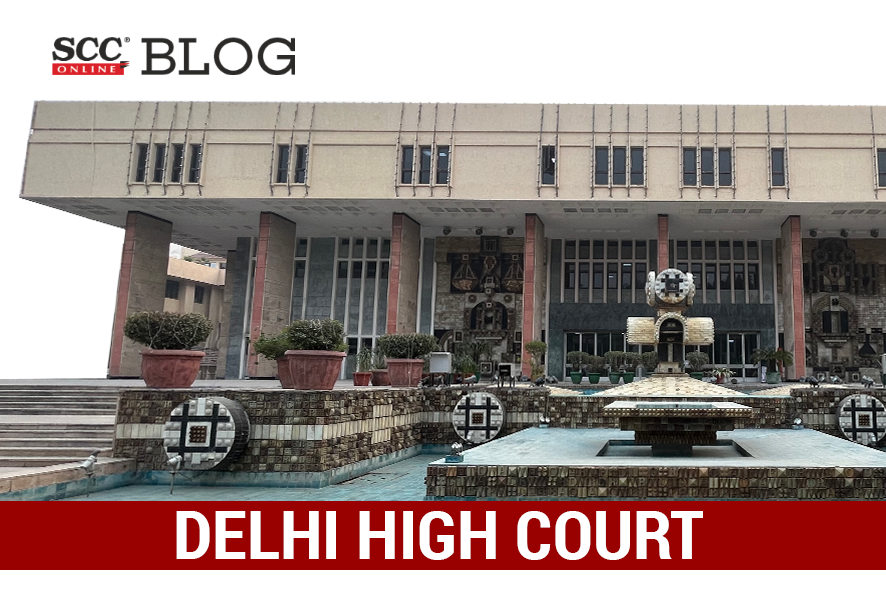Delhi High Court: In a case wherein the application was filed under Order 32 Rules 1 and 2 of the Civil Procedure Code, 1908 seeking to restrain the defendants from displaying any warning against the use of the gaming platform/application ‘WinZO Games’ of the plaintiff on the Android Operating System(s), a Single Judge Bench of Amit Bansal, J. dismissed the application and held that Google LLC’s warning was a mere disclaimer and would not result in trade mark infringement as the warning did not constitute ‘use of the trade mark in the course of trade’ within the meaning of Section 29(4) of the Trade Marks Act, 1999 (“Act”).
Background
The plaintiff was a digital gaming and technology company that operated an online digital gaming platform/application under the marks ‘WinZO’/ ‘WinZO Games’. The plaintiff had registrations/had applied for registrations in respect of the marks ‘WinZO’ and ‘WinZO Games’ in Classes 38, 41 and 42. The application for the marks ‘WinZO’/ ‘WinZO Games’ was introduced in 2017 and offered over seventy games in five formats to its users, in over twelve regional languages. The plaintiff’s application was available on the Google Playstore until it was converted by the plaintiff to a paid gaming platform. Thereafter, the plaintiff had to remove its application from the Google Playstore. The plaintiff owned and operated the website www.winzogames.com.
In 2021, the plaintiff was informed of the defendants displaying a disclaimer/warning to users upon an attempted download of the plaintiff’s application. The text of the warning was: “This type of file may harm your device. Do you want to keep WinZO.apk anyway?”. Therefore, the present suit was filed seeking permanent injunction against the defendants.
Analysis, Law, and Decision
The Court noted that Defendant 1, Google LLC used the warning in respect of all third-party applications that were downloaded from the internet and was not confined to the plaintiff’s application, therefore, the Court opined that the warning was not discriminatory. Further the Court noted that the warning given by the defendants was a disclaimer and did not prohibit or block the download and the users could continue to download and install the APK files. The APK files/applications of the plaintiff were not part of the Google Play ecosystem and therefore, the same did not undergo the various security checks and measures, therefore, the defendants were only cautioning the user before the proceeds to download the application.
The Court opined that several other browsers also displayed such warning when viewers/potential users downloaded third-party APK files/applications from their websites, therefore, the Court held that this appeared to be the industry practice. The Court relied on Rules 3(1)(i) and 3(1)(k) of the Information Technology (Intermediary Guidelines and Digital Media Ethics Code) Rules, 2021 and Rule 8 of The Information Technology (Reasonable Security Practices and Procedures and Sensitive Personal Data or Information) Rules, 2011 and further, opined that the defendants were required to put in place such warnings to guard the user against potential threats.
The Court opined that the use of the plaintiff’s trade mark in the warning would not constitute as a ‘mark likely to be taken as being used as a trade mark’ in terms of Section 29(1) of the Act. Further, a perusal of Section 29(6) of the Act would show that the use of the impugned marks by the defendants in their warning was not covered in any of the sub-clauses (a), (b), (c) or (d) of Section 29(6) of the Act. A perusal of the warning would show that the reference to the name of the APK file/application ‘WinZO’ was only for identifying the file being downloaded for the purpose of the warning. Therefore, the Court held that the warning did not constitute ‘use of the trade mark in the course of trade’ within the meaning of Section 29(4) of the Act. Further, since Google LLC was not advertising goods/services by using the plaintiff’s marks in any manner, the Court held that there was no case made out for infringement under Section 29(8) of the Act.
On the point of disparagement, the Court opined that there was no comparison between the products/services of the defendants with that of the goods/services of the plaintiff, nor was there any advertising for any goods or services. Therefore, the Court held that no case of disparagement was made out as there was no competing interest of the products/services of the defendants involved.
The Court opined that as far as the grounds of inducement of breach of contract between a user and the plaintiff was concerned, the act of a user opting to download an application from the plaintiff’s website would not result in a contract. A contract could come into place once the application was installed and since there was no contract in place at the time the warning was displayed, there could not be any inducement to breach the same. Therefore, the Court held that there was no contract at the stage when the warning appeared.
Thus, the Cout dismissed the application.
[Winzo Games (P) Ltd. v. Google LLC, 2023 SCC OnLine Del 907, decided on 14-2-2023]
Advocates who appeared in this case :
For the Plaintiff: Advocate Abhishek Malhotra;
Advocate Atmja Tripathy;
For the Defendants: Senior Advocate Arun Kathpalia;
Advocate Mamta Rani Jha;
Advocate Rohan Ahuja;
Advocate Shrutima Ehersa;
Advocate Vatsalya Vishal;
Advocate Amishi Sodani.
*Judgment authored by: Justice Amit Bansal
*Simranjeet Kaur, Editorial Assistant has reported this brief.






